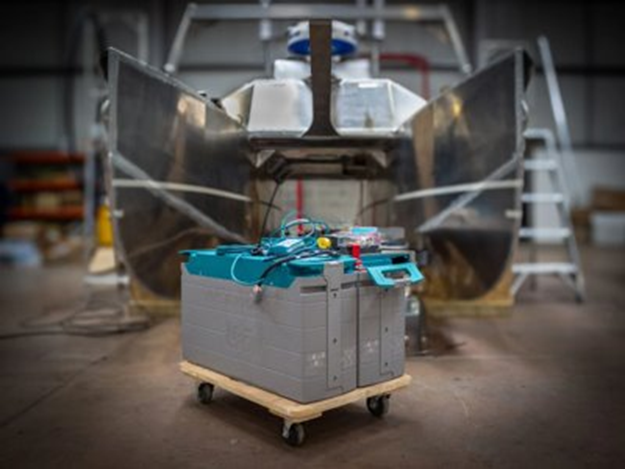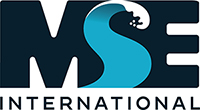BOSS LEVEL project addresses critical challenge in maritime decarbonisation
The BOSS LEVEL project, which recently completed, has successfully addressed a critical challenge in maritime decarbonisation: the need for advanced onboard instrumentation, data assimilation, and analytics to optimise vessel efficiency and battery health. The project, was part of the Smart Shipping Acceleration Fund (SSAF), funded by the UK Department for Transport (DfT) and delivered by Innovate UK.

Image © Hydro-Surv; REAV-60 long endurance USV
As the maritime industry transitions towards low-carbon and all-electric propulsion systems, the reliability of and longevity of Battery Energy Storage Systems (BESS) have emerged as a major concern and the need for smarter, more connected vessels has never been clearer.
The BOSS LEVEL project, involving a number of industrial and academic partners has successfully completed a feasibility study looking at an integrated system that uses onboard sensors, real-time data and AI to monitor battery health, optimise vessel energy use, and coordinate more efficiently with port-side power infrastructure. This digitalisation of vessels will represent a significant shift for the industry as it pushes forward with decarbonisation.
To ensure its technological advancements were grounded in operational reality, BOSS LEVEL conducted a comprehensive case study using an existing vessel. This served as a reference design to demonstrate how the system could be deployed. The case study was also used to assess compliance with emerging maritime regulations and safety standards related to battery management, emissions reporting, and digital data handling. The study evaluated costs and benefits to support a compelling investment case and inform commercial planning.
Striving to deliver meaningful benefits across multiple areas of the maritime industry, the BOSS LEVEL project focussed specifically on ferries, offshore windfarm support vessels, and harbour workboats. These three critical segments stand to gain significantly from improved energy efficiency and reduced emissions. By mapping compliance requirements in each sector and gathering insights from key industry stakeholders, outcomes of this project will accelerate the adoption of the solutions assessed.
Through the insights and tools developed by the BOSS LEVEL project, operators will be better able to optimise vessel speed, route planning, and battery usage in real time. This reduces unnecessary fuel consumption and limits recharging or bunkering needs, while improving battery performance by managing charging cycles more effectively and identifying early signs of degradation. In doing so, BOSS LEVEL directly supports safer, more reliable and more sustainable maritime operations.
Delivering a project of this scale and complexity required collaboration between a diverse range of experts. BOSS LEVEL brought together a powerful consortium of partners from both industry and academia.
B4T, specialists in IoT sensor technologies, led the project, Houlder supported design layout and regulatory and compliance requirements. Additional members of the consortium were Swanbarton, experts in large-scale battery storage and mobility solutions, and HydroSurv, innovators in autonomous vessel powertrain design. The academic contribution came from WMG University of Warwick, known for its advanced battery systems research, and the University of Portsmouth, whose engineering department brings deep expertise in power systems. MSE International was responsible for commercialisation planning and broader sector engagement.


